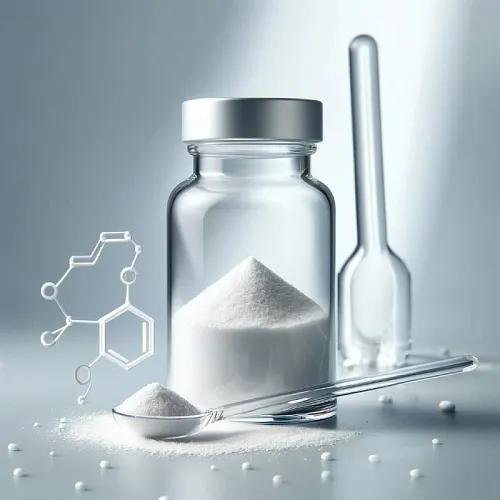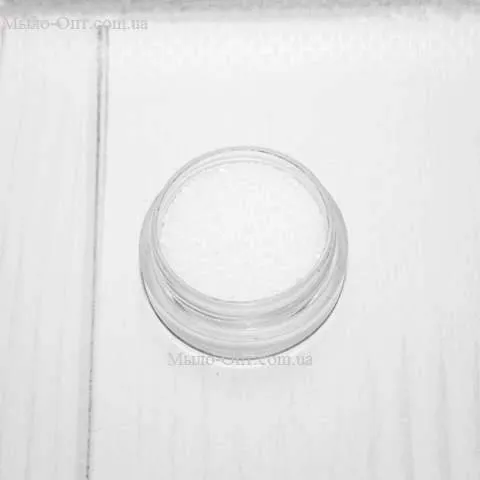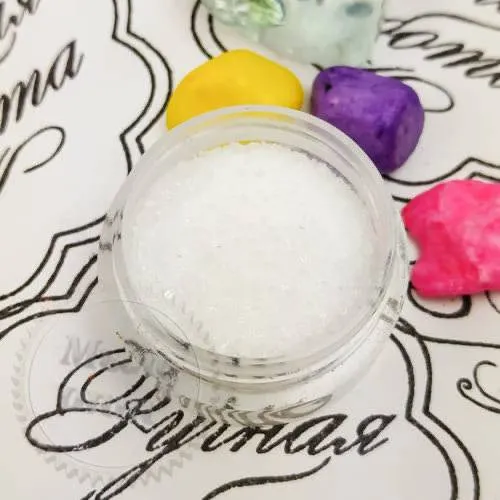-
 Absolutes
Absolutes
-
 Active Complexes
Active Complexes
-
 Actives and Peptides for Cosmetics
Actives and Peptides for Cosmetics
-
 Amino Acids
Amino Acids
-
 Food Flavorings
Food Flavorings
-
 Ayurveda
Ayurveda
-
 Vitamins
Vitamins
-
 Gelling Agents and Thickeners
Gelling Agents and Thickeners
-
 Hydrosols and Floral Waters
Hydrosols and Floral Waters
-
 Hydrolyzed Proteins
Hydrolyzed Proteins
-
 Fragrant and aromatic substances
Fragrant and aromatic substances
-
 Acids, Salts, Alcohols, and Alkalis
Acids, Salts, Alcohols, and Alkalis
-
 Preservatives and Antioxidants
Preservatives and Antioxidants
-
 Cosmetic Raw Materials
Cosmetic Raw Materials
-
 Dyes, Pearlescents, and Glitters
Dyes, Pearlescents, and Glitters
-
 Face Masks, Scrubs, and Dried Flowers
Face Masks, Scrubs, and Dried Flowers
-
 Oils, batters, macerates, oil mixtures
Oils, batters, macerates, oil mixtures
-
 Candle Supplies
Candle Supplies
-
 Melt and Pour Soap Bases
Melt and Pour Soap Bases
-
 Base for cosmetics, cream, serum, shampoo
Base for cosmetics, cream, serum, shampoo
-
 Fragrance Oils
Fragrance Oils
-
 Surfactants
Surfactants
-
 Peelings for Skin
Peelings for Skin
-
 Herbal Powders and Plant
Herbal Powders and Plant
-
 Silicones and Conditioning Surfactants for Hair
Silicones and Conditioning Surfactants for Hair
-
 Raw materials for dietary supplements
Raw materials for dietary supplements
-
 Packaging for Cosmetics and Perfumes
Packaging for Cosmetics and Perfumes
-
 Molds, Packaging, Tools
Molds, Packaging, Tools
-
 Organic Extracts
Organic Extracts
-
 Emollients for Cosmetics
Emollients for Cosmetics
-
 Emulsifiers
Emulsifiers
-
 Essential Oils
Essential Oils
Asparagine: Nurturing Your Skin's Vitality
Discover the multifaceted benefits of Asparagine, a naturally occurring alpha-amino acid that plays a crucial role in various biological processes within the skin. This hydrophilic amino acid is gaining recognition in the cosmetic industry for its potential to enhance skin hydration, support collagen synthesis, and contribute to overall skin health. Asparagine's unique properties make it a valuable ingredient in a wide array of cosmetic formulations, aiming to improve skin texture, resilience, and youthful appearance.
Applications and Areas of Use in Cosmetics:
Asparagine's diverse functions allow for its incorporation into numerous cosmetic products:
- Moisturizers and Hydrating Serums: Asparagine's water-attracting nature helps to bind moisture to the skin, improving hydration levels and preventing dryness. It can be a key ingredient in daily moisturizers, hydrating serums, and facial masks designed to replenish and maintain skin's moisture barrier.
- Anti-Aging Formulations: By supporting collagen synthesis, Asparagine can contribute to skin firmness and elasticity, potentially reducing the appearance of fine lines and wrinkles. It is a valuable addition to anti-aging creams, serums, and eye treatments.
- Skin Conditioning Agents: Asparagine can help to improve the overall texture and feel of the skin, leaving it smoother and more supple. It can be found in lotions, body butters, and hand creams formulated for skin conditioning.
- Hair Care Products: Asparagine can contribute to hair strength and hydration. It can be incorporated into shampoos, conditioners, and hair masks to improve hair texture and manageability.
- Nail Care Treatments: As a building block for proteins, Asparagine may contribute to stronger and healthier nails. It can be included in nail strengtheners and cuticle treatments.
- Soothing and Repairing Creams: Asparagine's role in cellular function may support the skin's natural repair processes, making it a potential ingredient in soothing creams and post-procedure treatments.
- Cleansers and Toners: Asparagine can be included in gentle cleansers and toners to help maintain skin hydration while effectively removing impurities.
- Personal Care Products: Its skin-conditioning properties make Asparagine suitable for inclusion in various personal care items like body washes and shaving creams.
Key Benefits for Cosmetic Formulations:
- Enhanced Hydration: Effectively attracts and retains moisture in the skin, combating dryness.
- Support for Collagen Synthesis: May contribute to skin firmness and reduce the appearance of wrinkles.
- Improved Skin Texture: Helps to create smoother and more supple skin.
- Skin Conditioning Properties: Enhances the overall feel and appearance of the skin.
- Potential for Skin Repair: May support the skin's natural healing processes.
- Versatile Application: Can be incorporated into a wide range of cosmetic product types.
- Water-Soluble: Easily integrates into water-based formulations.
- Globally Available: Our online store offers worldwide shipping.
Cosmetic Recipe: Hydrating Asparagine Facial Serum
| Ingredient | Percentage (%) |
|---|---|
| Hyaluronic Acid Solution (1%) | 70% |
| Glycerin | 10% |
| Asparagine | 5% |
| Panthenol (Pro-Vitamin B5) | 3% |
| Allantoin | 1% |
| Preservative (e.g., Phenoxyethanol) | 1% |
| Distilled Water | To 100% |
Instructions:
- In a clean beaker, combine the Hyaluronic Acid solution and distilled water. Gently stir until well mixed.
- Add Glycerin, Panthenol, and Allantoin to the mixture. Stir until all ingredients are fully dissolved.
- Carefully weigh and add the Asparagine powder to the solution. Stir continuously until it is completely dissolved and the serum is clear.
- Finally, add the preservative and stir gently to ensure even distribution.
- Carefully transfer the serum into a clean, airtight serum bottle.
Application Recommendations:
- Apply a few drops of the serum to clean, damp skin on the face and neck.
- Gently massage the serum into the skin until fully absorbed.
- Use morning and night as part of your daily skincare routine.
- Follow with your preferred moisturizer.
- Store the serum in a cool, dark place away from direct sunlight.
- The recommended usage level of Asparagine in cosmetic formulations typically ranges from 1% to 5%, but it can vary depending on the specific product and desired effect.
- Ensure the Asparagine powder is fully dissolved in the aqueous phase of your formulation for optimal efficacy.
- When incorporating Asparagine into anhydrous formulations (e.g., oils or balms), it may be necessary to first dissolve it in a small amount of a suitable polar solvent before adding it to the main formulation.
And also go to the Blog from Мыло Опт, where we share useful information about creating the right natural cosmetics
| INCI | Asparagine | |
| Other | ||
| Application | cosmetics, sports nutrition, diets, dry powders, mixtures | |
| Color product | white | |
| Composition | H2NCOCH2CH (NH2) CO2H * H2O | |
| Features | All information presented on the site is for reference only | |
| Minimum count | 1 | |
| Name | Asparagine 10 g | |
| Packaging | container for transportation | |
| Packing | 10 grams | |
| Solubility | water | |
| Type | Amino acids | |
| View | powder | |
-
Date:todayAuthor:Єлизавета, ХмельницкийReviews
Велике спасибі за чудовий асортимент і професійний підхід.















 Add to cart
Add to cart Buy in 1 click
Buy in 1 click

 Add a review
Add a review To favorites
To favorites To compare
To compare












